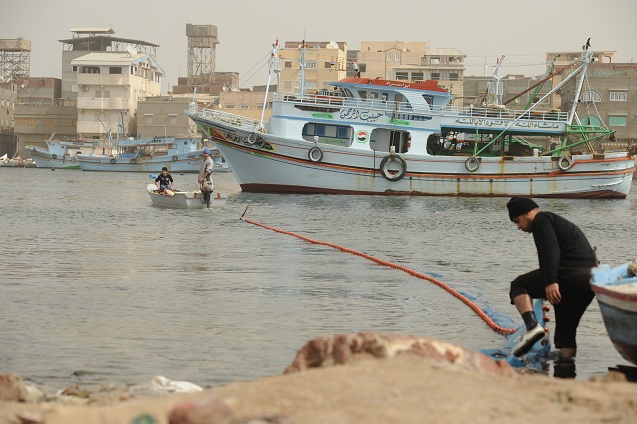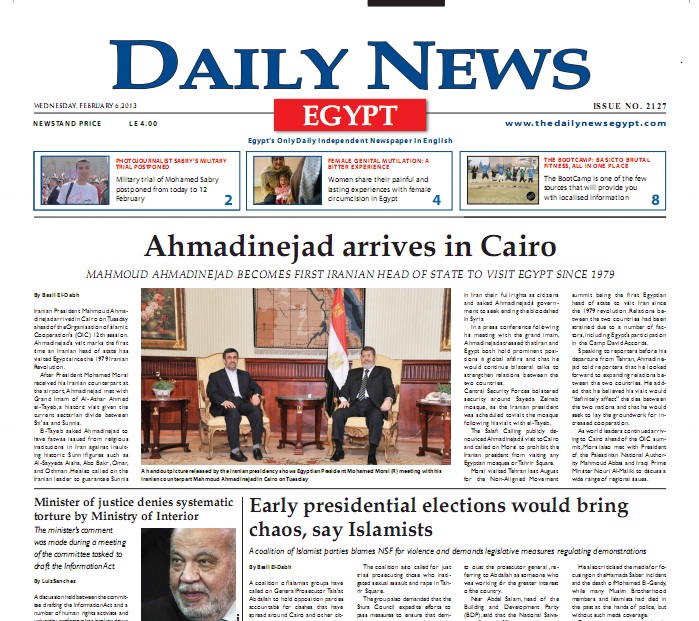CAIRO: After a sit-in on Sunday, journalists and staff of the state-run Nile News await for their demands of editorial independence to be met following promises from the government.
“We received some promises, but because the process requires a lot of bureaucracy, we are still waiting for answers,” Mona El-Shehab, a newscaster with the channel, said. The list of demands was presented to Minister of Information Ahmed Anis and the office of the news sector at state-run radio and TV.
Sunday’s sit-in was triggered by the censorship of a documentary by Ali Al-Geheiny, which was banned from being aired for over six months.
“The script for the film was finalized on May 18 and final editing on July 18,” Al-Geheiny said on a special appearance on Nile News that night preceding the screening of his film.
During the 10 pm special show, anchor Rasha Serry announced that the screening of the film was approved by Anis.
She added that the minister had also consented to an editorial independence policy based on standards of professionalism, and on the implementation of a salary and financial system starting Feb. 1.
Achieving editorial independence would be a turnover of a state TV editorial policy, which dictates choosing news items on bulletins and arranging the story line-up.
“We will achieve editorial independence, first by professionalism, and secondly, by real objectivity and neutrality. We have to treat the news with all its aspects and angles. The news item should not be abetted, or cut,” El-Shehab said.
She recalled reporting on news of the release of activist Alaa Abdel Fattah in a few sentences, excluding additional information or the use of sound bytes.
The news-reductionist approach that El-Shehab cited is a reflection of the channel’s bias towards those in power, whether it be the conservative parties or the military council, and away from “revolutionary faces.”
“There can be no neutrality when there is a revolution,” she added, stressing that employees must break down another twisted neutrality policy which does not allow them to hang a backdrop banner that reads, “Bread, Freedom and Social Justice,” while have the management openly pronounce bias towards authorities in power.
Radwa Mobarak, an anchor with the Nile TV English service, said that Nile TV, Nile News and Channel 1 news all follow the same editorial policy.
“We have to report to authority on specific topics, mainly things related to the government and the Supreme Council of the Armed Forces,” Mobarak adds.
Mobarak says that the editorial policies “were used for tens of years before the revolution,” but still affect the editorial decisions, causing editors to practice self-censorship in fear of reprisal.
Nile News was launched in the late 90’s as a separate entity from the news sector, and plans for it to become a completely independent vehicle were underway. These plans were, however, aborted in 2010, according to Mobarak.
“After the revolution all the plans were frozen and Nile News was chained to routine and red tape,” she added.
One of the demands of Nile News staff is to be separated from the news sector, so that its chief-editor can have complete control over the news process.
El-Shehab described the “central desk” in the news sector departments where filtered pieces of news are relayed to some state channels.
Before the Jan. 25 uprising, Nile News employees admit to receiving memos dictating what elements to cover in a story, and what stories to exclude altogether. Similar complaints were made over the past year.

